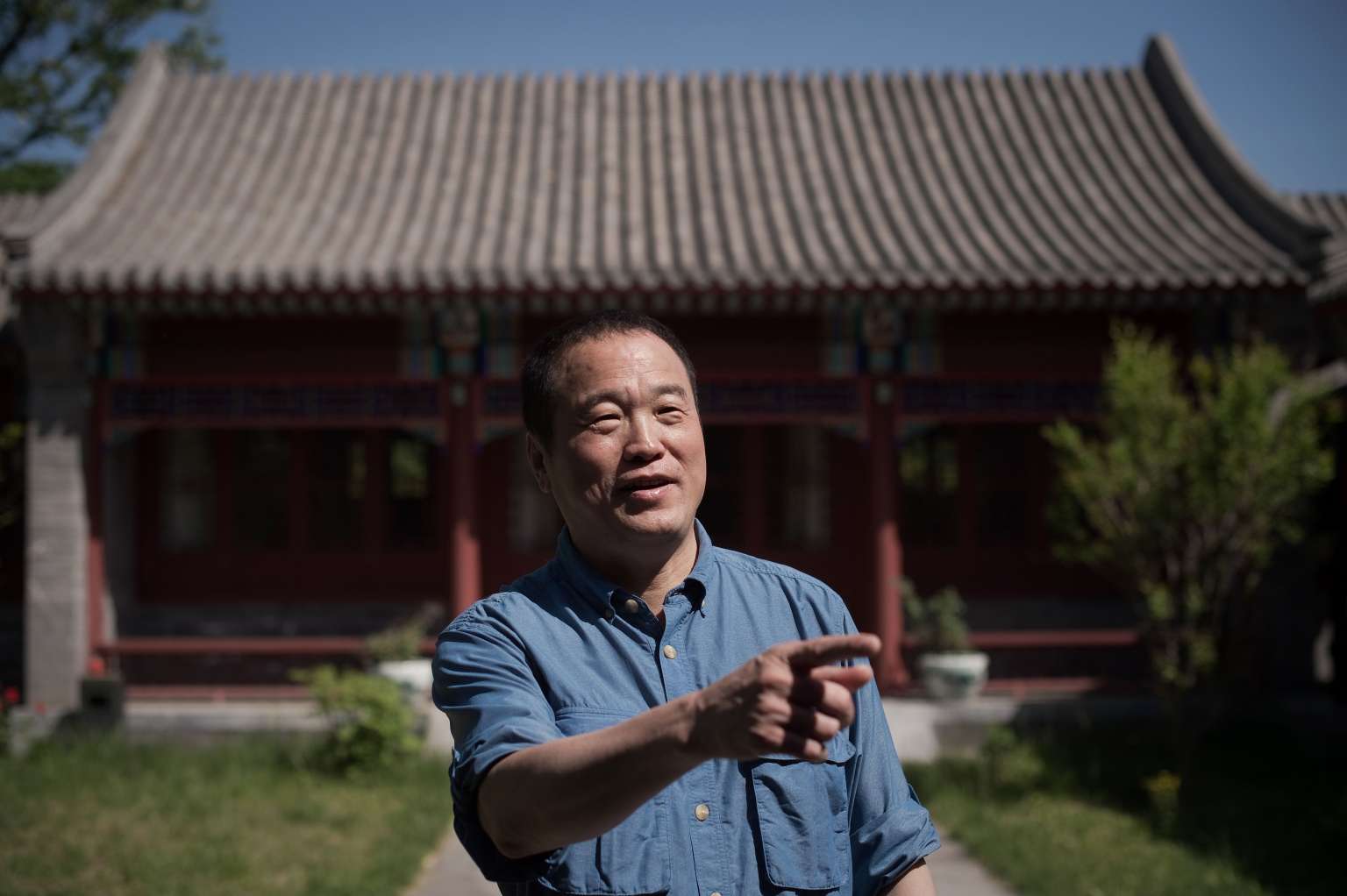Cultural Revolution demons haunt Chinese billionaire Huang Nubo
Sign up now: Get insights on Asia's fast-moving developments

Chinese poet and billionaire Huang Nubo gesturing at the Chinese Poetry Research Institute, inside the Pekin University in Beijing.
PHOTO: AFP
Follow topic:
BEIJING (AFP) - His father killed himself in prison after being branded a counter-revolutionary, but during the Cultural Revolution Huang Nubo became a Red Guard himself, humiliating and beating others. It was the making of him and his generation, says the billionaire - yet he dreads a repetition.
One of China's richest men, who climbs mountains to relax and has summitted Everest three times, Huang is best known overseas for a controversial and ultimately unsuccessful attempt to buy a swathe of Iceland.
But under the pseudonym Luo Ying, he has written two volumes of poetry describing his experiences during Mao Zedong's decade of social upheaval known as the Cultural Revolution that began 50 years ago on Monday.
His father Huang Junfu - a colonel who fought for Communist forces in China's civil war - fell victim to one of Mao's earlier purges, and was jailed and abused. He saved up medicine to take a fatal overdose when his son was only three.
"When they buried him in the dunes, his eyes were still staring," Huang describes in verse.
"An enemy got no gravestone, so he rotted like a nameless dog."
Despite enduring years of stigma from villagers in the northern region of Ningxia, during the Cultural Revolution Huang became an enthusiastic Red Guard. One poem describes him punching a landowner - who later died - with his "steel fists".
Later he was one of some 20 million youngsters "sent down" by Mao to toil alongside farmers in the countryside and correct their elitist ways.
With neighbour pitted against neighbour, individuals condemned by their colleagues at "struggle sessions", and children denouncing parents, the era was a complex web of victimhood and complicity.
"I am a victim, a participant and a perpetrator; I denounced others and was denounced," Huang told AFP.
The last line of his second book - banned on the mainland - reads: "For people who lived through the Cultural Revolution, it's no use trying to figure out who's a human and who's a ghoul."
"We're all demons. Myself included," he said at Peking University, where he has funded a poetry research centre.
China's rise in recent decades - triggered by the Communist party's repudiation of Mao's ideas and the introduction of market forces - was built on the foundations of the period's most destructive legacy, Huang believes.
"The Cultural Revolution taught this generation of mine that you must act like a wolf in order to survive," he explained.
It destroyed old value systems and replaced them with the belief "that winner takes all, that if you can beat someone, then you're a hero, that if you're rich, you're in the right."
Huang's own life followed a similar trajectory to the ruling party: he left a job in its propaganda department to set out on the capitalist road to riches with his Zhongkun real estate and tourism conglomerate.
Now 59, his fortune is estimated at US$1.3 billion (S$1.78 billion) by Chinese wealth publisher Hurun.
But he has never found the bones of his father, settling instead for carving his name in the mountainside tomb he built for his mother once he became rich.
In 1981 the Communist Party officially pronounced the Cultural Revolution a grave error that "led to domestic turmoil and brought catastrophe to the Party, the state and the whole people".
It ascribed chief responsibility to Mao, avoiding the question of the party's own culpability, and now it limits discussion of the period to prevent undermining the legitimacy of its rule.
Huang's first book, "Diary of a Sent-Down Youth", is also less directly critical and is freely available on the mainland.
But censors barred "Memories of the Cultural Revolution", which is filled with visceral recollections: corpses torn open, female bodies floating downriver with sticks in their genitals as testament to their rape, and the execution of an elderly woman for singing the wrong lyrics to a patriotic song.
As many of the era's horrors are slowly forgotten, nostalgia for some aspects persists in certain quarters: television shows romanticise the lives of sent-down youths, and there are more than 50 museums about them around the country.
Six of the seven members of the party's Politburo Standing Committee, the most powerful organ in China, were sent to the countryside during the period, including President Xi Jinping.
An anniversary concert earlier this month at the Great Hall of the People in Beijing stirred controversy for an uncritical presentation of the period's anthems and propaganda imagery.
Huang decries the whitewashing of history.
"If we continue on like this and don't reflect on this past, there will be another Cultural Revolution," he said.
"If the impression left behind is that the Cultural Revolution was so romantic... people won't be afraid to turn once again to brutality."
As a poet he feels a responsibility to record what he witnessed.
"When at the end you look at your current position in society, you'll think back and wonder whether the nightmare you lived through was in fact right or not," he said.
"But the harm it's brought to your heart can never be got rid of in a lifetime."

